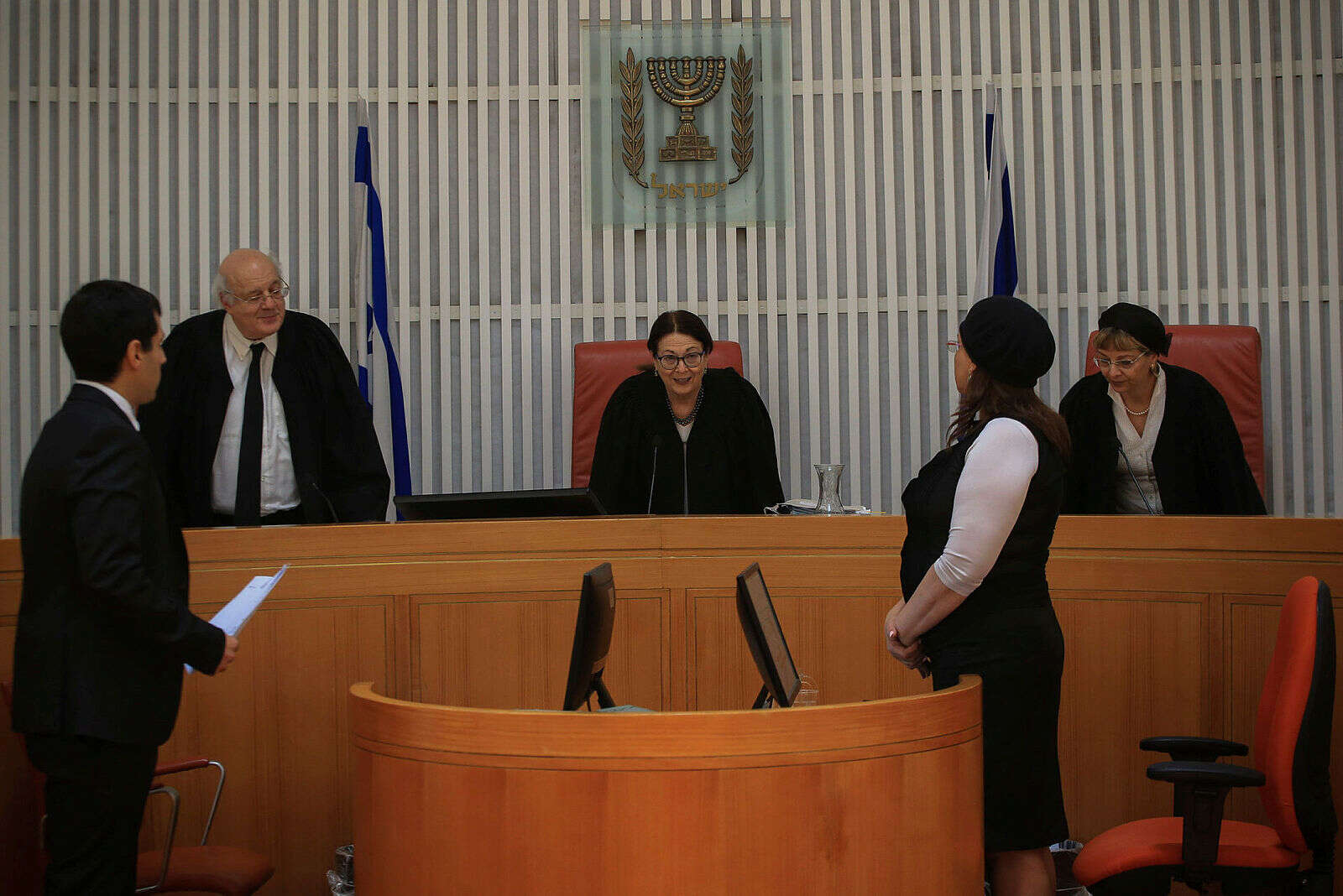The Public Trust Index in the Legal System of the Israel Democracy Institute for 2021.
The main findings: Most of the public agree that the Supreme Courts should have the authority to repeal laws enacted by the Knesset and violate the principles of democracy. The majority prefers it to be preserved for extreme cases only.
In addition, the majority believes that the election of judges is made for political reasons, while the majority on the right but a minority on the left and center believe that the judicial system does not operate in a neutral manner towards elected officials.
The report was submitted today (Thursday) to President Yitzhak Herzog, and has been done for the 19th year in a row. Its purpose is to reflect an up-to-date picture regarding the degree of trust in state institutions and the public's appreciation of the resilience of Israeli democracy.
An examination of the level of trust that the public places in the Supreme Court shows that although there is a continuing decline in trust in it, the Supreme Court has maintained its place among the three governmental institutions that enjoy the highest level of trust (after the military and president).
A small majority in the public (56%) expressed support for the Supreme Court being given the power to repeal laws enacted by the Knesset if found to be contrary to the principles of democracy.
The majority of seculars (70%) agree with this claim compared to a minority of the religious (22%) and the ultra-Orthodox (17%).
Segmented by sector, a large majority (74%) of Arabs think so, compared with about half of Jews (52%).
However, the question of whether the High Court intervenes too much in government and ministerial decisions reveals that the left and center have a majority (80% and 53% respectively) who do not agree that the High Court interferes too much in government decisions.
On the right, on the other hand, there is a majority (69%) who believe the opposite, that there is too much interference in government decisions by the High Court.
40% of the public think that the court is too strong, 33% think that its power is appropriate for its status, 14% that it is too weak and 13% did not respond.
Segmentation by political camps shows that while in the left camp 11% think the court is too strong, this amount increases as you move to the right - in the center 24% and on the right 57%.
The same goes for the level of religiosity: while among the secular only 22.5% think that the court is too strong, 76% of all ultra-Orthodox and 70% of the religious agree with it.
Are the professional decisions of Supreme Court justices influenced by their political positions?
On the left and in the center of the higher proportion (48% and 32% respectively) believe that decisions are at all or almost unaffected by the political positions of judges, while a small majority (51%) think that decisions are influenced by judges' political views.
The section examining the judicial system shows that the majority of the public thinks that the process of selecting judges is done mainly out of political considerations.
This perception is particularly pronounced among the ultra-Orthodox, of whom a large majority see the election as a political (87%) and religious (77%) process.
Among the secular, however, less than half (46.5%) think so.
Among those who defined themselves as left-wing the proportion who believe that the considerations for choosing judges are mainly or only professional is the highest (46%) compared to the center (36%) and the right (19%).
Neutrality towards elected officials: About half of the public (52%) believe that the political affiliation of elected officials has an impact on how the judiciary treats them. In segmenting the Jewish public according to political camp, the view that the judiciary as a whole does not act neutrally towards elected officials as a result of their political affiliation is prevalent on the right (63%) but this is a minority opinion in the center (39%) and left (29%). Similarly, while on the right there is a majority (65%) of those who believe that judges do not treat everyone who appears before them equally, in the center and on the left, less than half believe that this is the case (47% and 45.4%, respectively).
Among the left and the center, there is a majority who believe that there is no or little corruption in the system (73% and 52%, respectively).
Also, among those who believe that in the justice system there is no or little corruption at all, the vast majority (80%) estimate that the choice of judges is made solely or mainly for professional reasons.
On the other hand, among those who believe that there is a lot of corruption in the system, the vast majority (88%) believe that political considerations are the main ones in choosing judges.
Does the State Attorney's Office act according to political or professional considerations?
On the left the majority (63%) believe that the State Attorney's Office acts only or mainly for professional reasons, in the center they think so the highest rate (47%) but on the right the majority _ (63%) believe the opposite - that the State Attorney's Office is only or mainly for political reasons.
Yohanan Plesner, President of the Israel Democracy Institute: "Although according to the survey only one-fifth of the public met with the courts themselves - the positions of all interviewees regarding the system are solid and were closely related to the level of religiosity and political affiliation. The gaps between camps and groups in the Jewish public The public opinion situation regarding the justice system is worrying, as it proves that the campaign against this system permeates and has succeeded in damaging the public's assessment of the law enforcement system as a whole, which requires us to address the gap between In the corruption and appreciation she receives among experts in the field. "
Were we wrong?
Fixed!
If you found an error in the article, we'll be happy for you to share it with us















